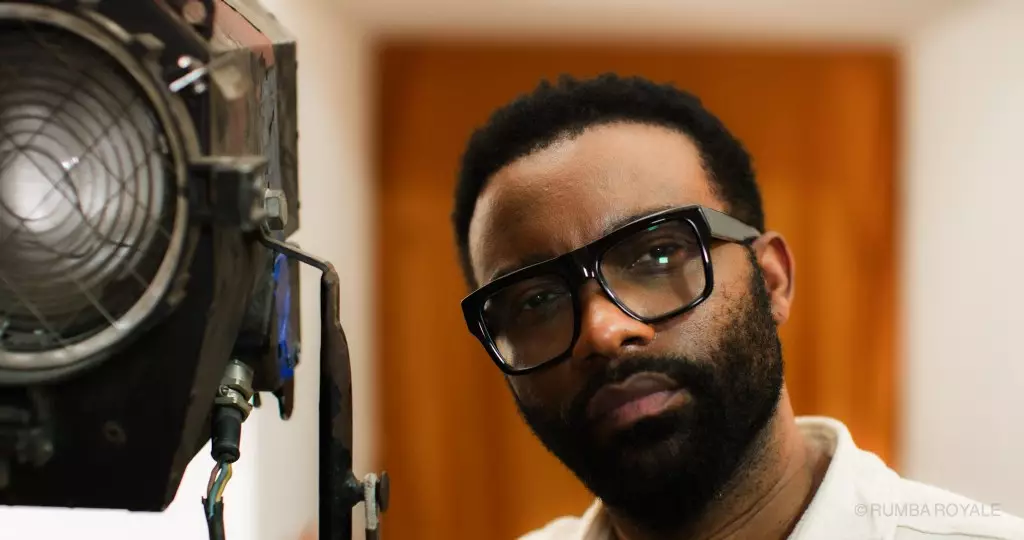With the film industry witnessing an unprecedented surge in creativity and storytelling, the debut of “Rumba Royale” signals an important moment for African cinema, especially with talents like Congolese sensation Fally Ipupa stepping into the spotlight. Known for his magnetic performances and dubbed the “Prince of Rumba,” Ipupa’s foray into acting promises to redefine how African stories are perceived globally. The film, set against the rich tapestry of pre-independence Congo, brings forth not just the aesthetics of the Congolese rumba but also the underlying socio-political themes that resonate deeply within the continent.
The arrival of Pathé Touch Afrique as the distributor signifies a new era for African filmmakers. No longer relegated to the sidelines or overshadowed by Western narratives, African cinema is being given the platform it deserves to flourish on a grander scale. This shift comes with a promise—audiences both within Africa and beyond are ready to embrace authentic stories, and it is crucial that productions genuinely reflect the culture and history they aim to portray.
The Importance of Empowering Local Narratives
While the allure of international filmmaking can be tempting, there’s unparalleled value in telling local narratives that capture the essence of African life and culture. “Rumba Royale,” in particular, emerges as a stirring love letter to the Congo—a nation often overlooked in major productions. The passionate appeal of the filmmakers, directors Yohane Dean Lengol and Hamed Mobasser, to provide an authentic representation of Congolese life speaks volumes about the need for cinema that resonates with its audience on a personal level.
Moreover, highlighting Congolese rumba within the film is not merely an artistic choice; it’s a statement. Music serves not just as a backdrop but as a narrative device that binds characters together and reflects their struggles, aspirations, and the rich history of the nation. As a soundtrack that has gained recognition locally and internationally, rumba can help serve as a cultural ambassador for Congo, promoting greater understanding and appreciation for its stories and struggles.
Expanding Beyond Borders
The film’s distribution plan is ambitious. Pathé Touch Afrique is strategizing a wide release across Africa, with intentions to cater to French, English, and Portuguese-speaking countries. This deliberate approach illustrates a progressive acknowledgment of Africa’s linguistic diversity and cultural nuances, offering the film the chance to resonate across varying demographics. The aim to include special screenings internationally, notably in Europe and the U.S., could potentially bridge gaps between African narratives and a global audience eager for fresh, authentic content.
Such moves not only serve to market “Rumba Royale” but pave the way for future projects, often sidelined by mainstream distributors. When African stories overflow into global markets, they have the potential to challenge existing stereotypes and reshape perceptions of the continent, which too often are painted with broad strokes of despair rather than celebrating the complexity and vibrancy of everyday life.
A Collaboratively Driven Project
What strikes a chord about “Rumba Royale” is the invigorating collaborative spirit that brought it to life. The convergence of various production houses, including Rodeo Chameleon Productions and Emotive Productions, underlines the power of teamwork and shared vision in a malleable industry. Each contributor has poured into this project far more than mere finances; they’ve invested their passion and creativity, generating a synergy that is vital for the success of any artistic endeavor.
Moreover, under the helm of Sébastien Onomo, Pathé Touch Afrique appears to have found a new momentum in galvanizing African talent while fostering partnerships that encourage diverse storytelling. This model not only revitalizes the film industry in the region but promises a pipeline of talent ready to tell their stories. It nurtures the belief that local narratives can finance themselves, allowing filmmakers to explore beyond the established norms without reliance on external validation.
The Evolution of African Cinema
The advent of “Rumba Royale” and its subsequent release marks a pivotal moment in the evolution of African cinema. As more projects embrace their cultural roots and look to tell stories that are raw, authentic, and complex, there is a burgeoning hope that these narratives will capture hearts and minds worldwide. The willingness of producers to invest in ambitious projects speaks to a growing recognition that African voices matter, and they must be heard.
In an era when global interest in local narratives continues to rise, it’s imperative that films like “Rumba Royale” succeed—not just for their artistic merit but as representations of a continent ready to step into the global arena with confidence and pride. Each scene, enriched by authentic rumba, reflects the heart of a nation that is not merely surviving but thriving, eager to share its story with the world.

